Radio Education Program Implementation
From 2021 till 2023 GPA/UNICEF has been providing Conflict Sensitive Education through Radio Education Programme to over 23,000 (of over 200,000 needy) conflict affected out of school children. Children are able to study effectively and pass their entrance exams into secondary school in spite of the protracted band on formal schooling (especially effected in the rural/suburban communities) imposed by Non-State Armed Groups in the crisis NW/SW (Anglophone) regions of Cameroon. Children are studying in Listening Groups in safe learning environments within their neighborhoods







The REP takes into consideration all groups of persons including the minority like the Muslims and persons living with disabilities. this educational approach is considered as a nondiscriminatory.


GPA’s Remedial Education Programme constitute the most significant innovation in the provision of special education services in addressing declining literacy and numeracy standards to conflict affected out of school and displaced children experiencing learning difficulties as a result of the Anglophone Crisis.
In 2019 while the crisis remained protracted with the prolonged ban on schooling that particularly affected NSAGs strongholds (rural and semi-urban communities) and coupled with mass displacements into hideouts, GPA saw a need to carry education to IDP children in their temporal settlements (some in bush hideouts). In this conflict sensitive situation, this type of education and psycho-social support (PSS) services was invaluable.

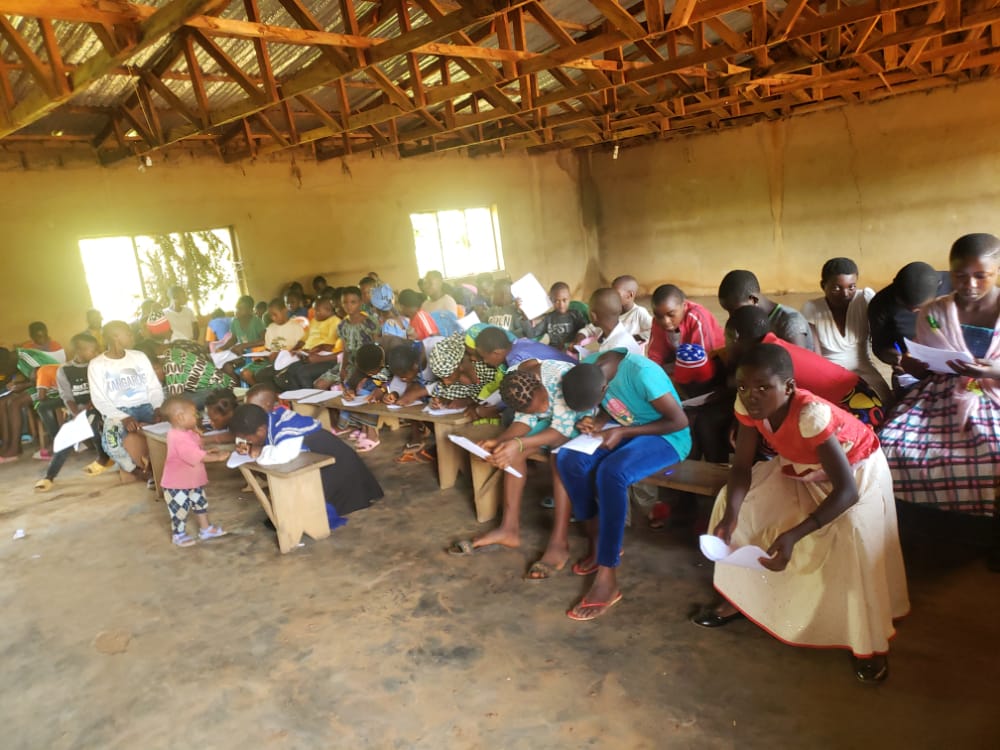



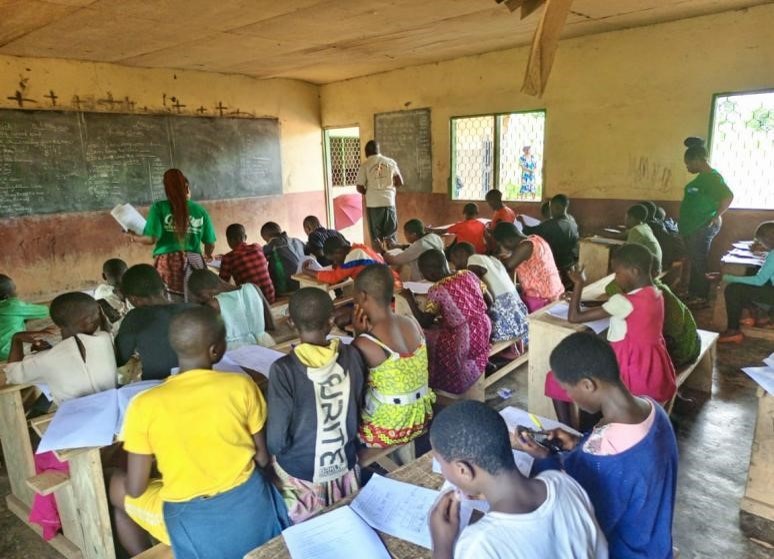
After successfully providing un-interrupted Remedial Education to 1,560 conflicts affected out of school children in Menchum Valley Subdivision for four months (August – Nov. 2019) GPA began exploring better learning options for conflict affected out of school children including Radio Education to conflict affected children in Siera Leon, Liberia and Chad. Recognizing the role of education in emergencies in developing literacy and numeracy skills in out of school conflict affected children (including early childhood development), GPA had adequate basis to carry out an education survey called Radio Listening Survey (RLS). This survey that sampled three subdivisions including: Bamenda I, Mbengwi and Batibo was designed to demonstrate the relevance and evidence to provide a broader perspective conflict sensitive education to other affected children elsewhere in the NW/SW (Anglophone) regions of Cameroon that have been out of school for two years (since 2017), as a result of the prolonged school closures instituted/enforced by non-state armed groups (NSAGs). The outcome of the survey motivated GPA to expand its non-formal education to the divisions of Momo, Bui, Mezam and Boyo enrolling 15,864 children by March, 2020.


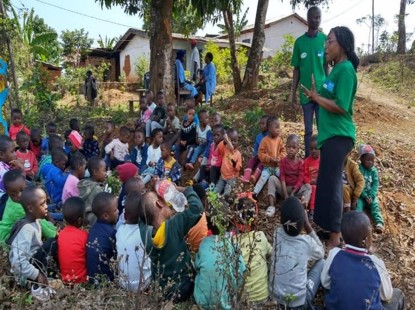
To ensure effectiveness and efficiency the following were recruited; 8 divisional supervisors; 64 subdivisional supervisors; and 750 community facilitators were recruited and provided regular trainings to run the REP.
The training of subdivisional facilitators led to them being commissioned to train Radio Education (REP) Community Facilitators on the creation of Learning Groups and facilitation of learning programme. They are equally charged distribute radios to facilitators for the Community Learning Groups. In the context of the Anglophone Crisis, REP has demonstrated its standard as the most relevant Conflict Sensitive (alternative) learning programmes to out of school conflict affected children as a result of a band on formal schooling imposed by Non-State Armed Groups in the crisis.
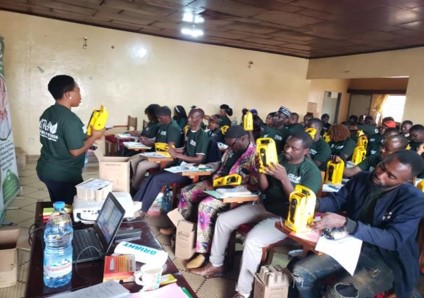
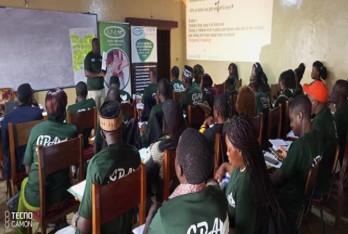
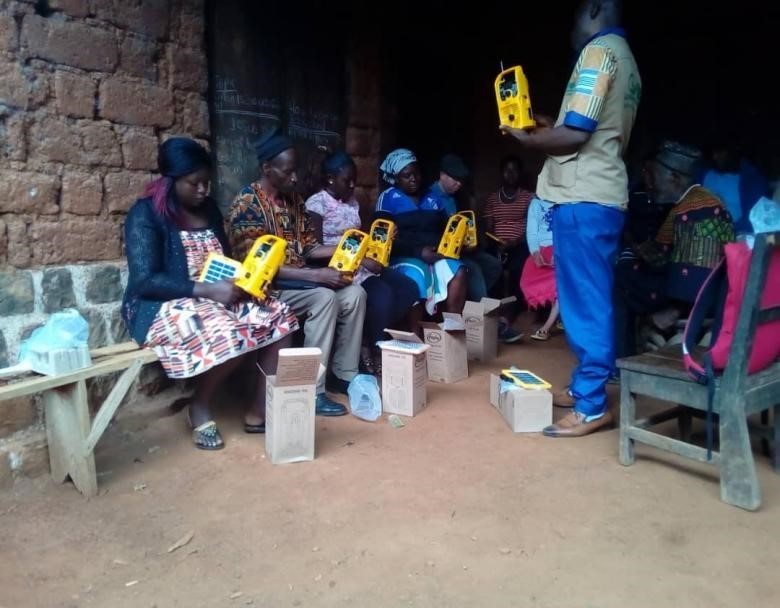
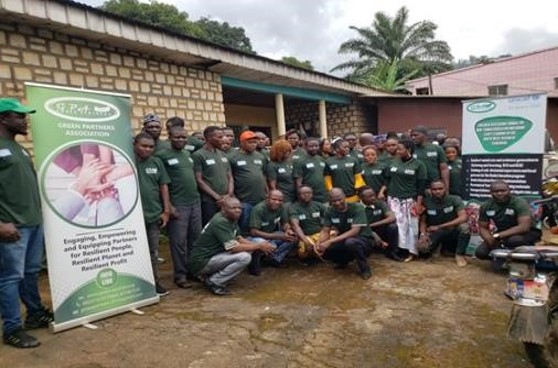
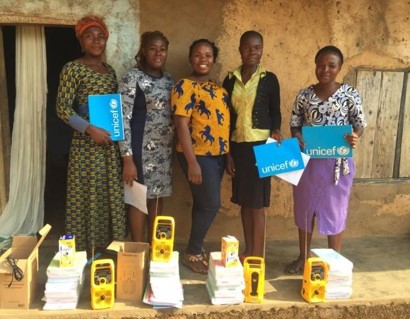

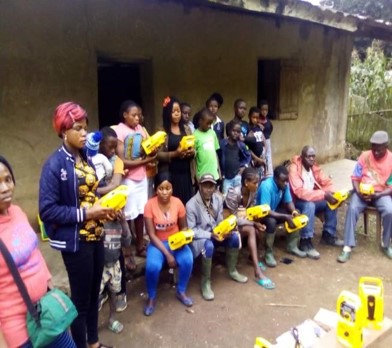
GPA cannot be perfect yet, over the years we strive at learning as we go with deep understanding that our successes and organizational growth and sustainability lie in making positive impact on the society, without which we may be exposed to negative consequences such as reputational damage or legal liabilities. From 2019 till date (December 2023) our CSR initiatives have been the element of our leadership and important performance differentiator within the Education Cluster, the United Nations Office for Coordination of
Humanitarian Affairs (OCHA) and UNICEF, in the context of the humanitarian crisis in the Anglophone (NW/SW) regions of Cameroon. Till date GPA remains UNICEF’s major implementing partner and Co-Lead of the EiE Working Group in the NW region (alongside Plan International).
